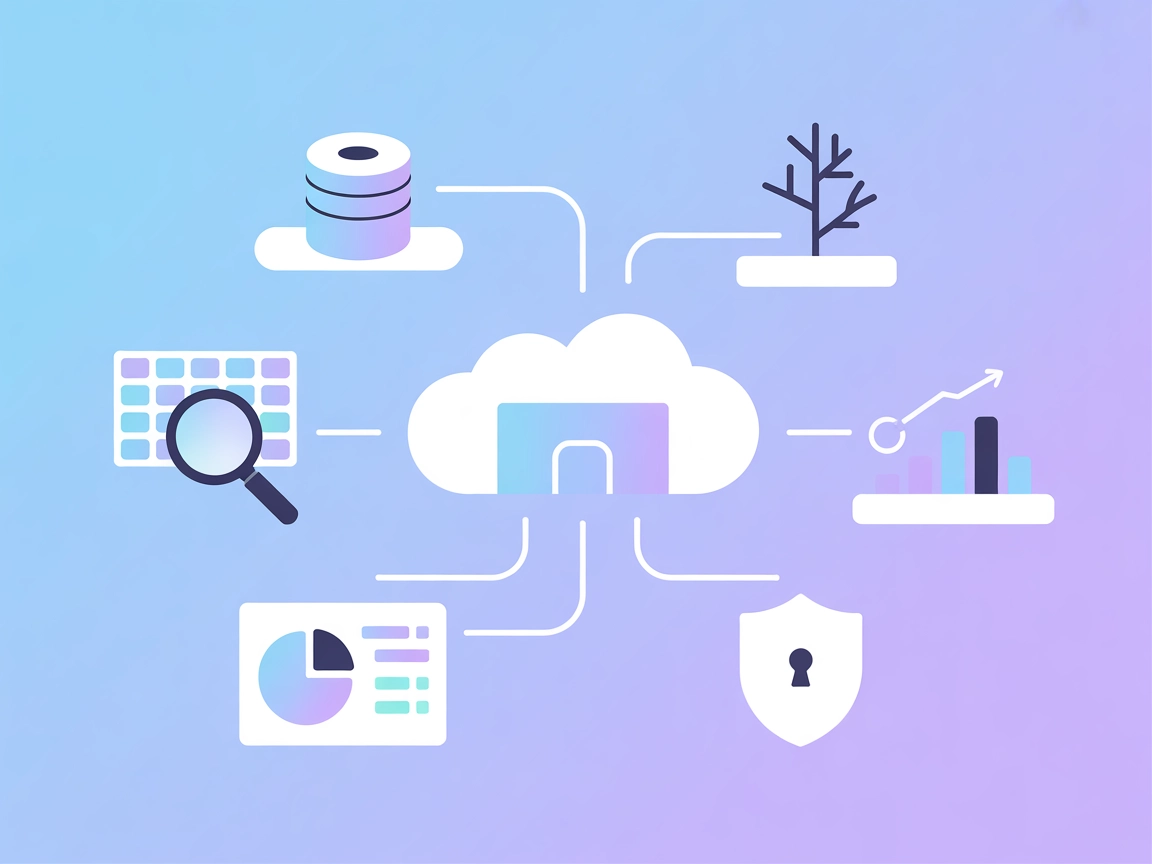
Model Context Protocol (MCP) Server
The Model Context Protocol (MCP) Server bridges AI assistants with external data sources, APIs, and services, enabling streamlined integration of complex workfl...

Integrate FlowHunt with Odoo ERP via the Odoo MCP Server to automate business tasks, manage records, and connect your AI workflows to real-time business data.
FlowHunt provides an additional security layer between your internal systems and AI tools, giving you granular control over which tools are accessible from your MCP servers. MCP servers hosted in our infrastructure can be seamlessly integrated with FlowHunt's chatbot as well as popular AI platforms like ChatGPT, Claude, and various AI editors.
The Odoo MCP (Model Context Protocol) Server is a tool that enables AI assistants to interact with Odoo ERP systems. By exposing a standardized interface, it allows AI-driven workflows to search, create, update, and manage Odoo records programmatically. This MCP server connects AI tools to Odoo’s database and business logic, enabling tasks such as querying customers or sales orders, managing inventory, or automating record creation. Its integration empowers developers and business users to boost productivity by automating repetitive tasks, surfacing real-time business data, and executing complex domain operations directly from AI clients.
| Tool Name | Description |
|---|---|
| search_records | Search for records in any Odoo model, with support for model, domain filter, fields, limit, offset, and sort order. |
| get_record | Get detailed information about specific records in Odoo. (Parameters not fully detailed in available documentation.) |
| create_record | Add new records to any Odoo model. |
| update_record | Modify existing records in Odoo. |
| delete_record | Remove records from the Odoo system. |
| execute_method | Call custom methods on Odoo models for advanced operations. |
| list_models | Discover all available models in your Odoo instance. |
| model_introspection | Retrieve field definitions for any model, enabling dynamic exploration of the Odoo schema. |
Customer Data Management
Easily search, retrieve, and update customer information in Odoo using AI assistants, streamlining CRM workflows.
Sales Order Automation
Automate the creation, updating, and querying of sales orders, reducing manual entry and improving order processing speed.
Inventory Monitoring
Query product inventory levels, identify low-stock items, and trigger restocking actions from within AI-powered interfaces.
Custom Business Logic Execution
Enable AI tools to call Odoo model methods for custom workflows, such as triggering automated invoicing or custom reports.
Odoo Model Exploration
AI agents can list available models and their field definitions, supporting dynamic exploration and integration of Odoo data structures.
No Windsurf-specific setup instructions are provided in the repository.
~/Library/Application Support/Claude/claude_desktop_config.json%APPDATA%/Claude/claude_desktop_config.jsonmcpServers object:{
"mcpServers": {
"odoo": {
"command": "python",
"args": ["-m", "mcp_server_odoo"],
"env": {
"ODOO_URL": "https://your-instance.odoo.com",
"ODOO_DB": "your-database",
"ODOO_USERNAME": "your-email@example.com",
"ODOO_API_KEY": "your-api-key"
}
}
}
}
env section above.No Cursor-specific setup instructions are provided in the repository.
No Cline-specific setup instructions are provided in the repository.
To integrate Odoo MCP server into your FlowHunt workflow, add the MCP component and configure it as follows:

Click the MCP component and use this JSON configuration in the system MCP config section:
"odoo": {
"transport": "streamable_http",
"url": "https://yourmcpserver.example/pathtothemcp/url"
}
Replace "odoo" and the URL with your actual MCP server details.
| Section | Availability | Details/Notes |
|---|---|---|
| Overview | ✅ | Summary from README |
| List of Prompts | ⛔ | No prompt templates found |
| List of Resources | ⛔ | No explicit MCP resources described |
| List of Tools | ✅ | search_records, get_record |
| Securing API Keys | ✅ | Uses env in Claude config, .env file described |
| Sampling Support (less important in evaluation) | ⛔ | No mention of sampling support |
Our opinion:
The Odoo MCP Server provides basic but useful integration between AI tools and Odoo ERP, with clear documentation for setup (on Claude) and essential tools. However, there is a lack of advanced MCP features such as prompt templates, resources, or cross-platform setup instructions. It is functional but limited in scope.
| Has a LICENSE | ✅ (GPL-3.0) |
|---|---|
| Has at least one tool | ✅ |
| Number of Forks | 0 |
| Number of Stars | 0 |
Rating: 4/10
The Odoo MCP Server offers essential Odoo integration for AI, but lacks advanced MCP primitives (prompts/resources), multi-platform setup guidance, and has limited community traction.
The Odoo MCP Server allows AI assistants to interact with Odoo ERP, enabling programmatic search, creation, and management of records such as customers, sales orders, and inventory.
The server exposes at least two main tools: 'search_records' for querying any Odoo model, and 'get_record' for fetching details about specific Odoo records.
Add the MCP component in your FlowHunt workflow and use the provided JSON configuration to connect to your Odoo MCP server. Replace the endpoint and credentials with your own details.
You can automate customer management, sales order processing, inventory monitoring, custom business logic, and model exploration—all from within your AI-powered workflows.
Store Odoo API credentials in environment variables or configuration files as shown in the setup instructions, and never hardcode them into your workflow definitions.
Unlock the power of AI-driven automation for your Odoo ERP. Easily manage customers, sales, inventory, and more from within FlowHunt.

The Model Context Protocol (MCP) Server bridges AI assistants with external data sources, APIs, and services, enabling streamlined integration of complex workfl...

The Opik MCP Server connects the Opik platform with IDEs and development tools, enabling AI assistants to access project management, prompt templates, traces, a...

The Apache IoTDB MCP Server enables seamless integration of the IoTDB time-series database into AI workflows, allowing AI assistants and developer tools to exec...
Cookie Consent
We use cookies to enhance your browsing experience and analyze our traffic. See our privacy policy.